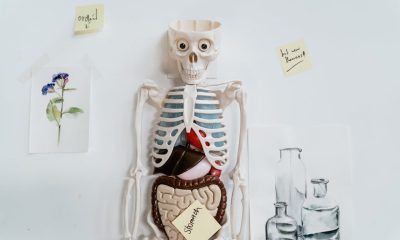
Although this whining may focus on negative content, it creates a group identity that allows the participants to feel less alone. (Pexels Photo)
A problem shared is a problem halved. Research by Age UK shows that only 29% of adults share their worries, but of these 36% feel brighter as a result; 26% feel relief having confided in someone, and 8% feel that the problem recedes once shared.
Both the Sun and Daily Mail newspapers recently highlighted research by Southwest University in Chongqing, China, which asked a similar question in relation to teenagers: are they happier the more they “co-ruminate”.
The Sun interpreted this as: “Whining can actually make us happier – but only in a key setting”. And the Daily Mail as: “Ranting with your friends can actually make you happier, study finds”. But does misery really like company so much that we might enjoy being miserable? Let’s take a closer look at the study.
The researchers defined co-rumination as communication where people overthink and repeatedly discuss personal issues and negative emotions within a group for social support. They are conversations defined not only by the pessimistic personal topics discussed, but the group support in discussing such topics together.
This process of collective rumination is key to psychotherapy, where it is not only the telling of negative experiences to another, but the experience of having your experiences validated, that has the potential to enable you to feel better – or, at least, less bad.
Co-rumination is more effective if the speaking involves what the Southwest University researchers call an “intimate, honest self-disclosure” to people within a relationship that is supportive and encouraging (co-reflection), rather than a set of talks within an empty, inauthentic relationship that merely “reinforces negative experiences, increasing the risk of depression and anxiety” (co-brooding).
Psychotherapy encourages prioritising a recognition of problems in order to address them (co-reflection), over worrying talk we often have with ourselves or others that only emphasise and keep us stuck in worries (co-brooding). Misery does indeed like company, but we can still choose what company our misery can keep.
‘Obsessive whining’
The new study significantly recognises positives in the bitching, griping, miserable company, termed by the researchers “obsessive whining”. Although this whining may focus on negative content, it creates a group identity that allows the participants to feel less alone.
We see this in schoolyards, workplaces and online platforms where the negativity and bitchiness allows us be part of a group. And belonging to a group often offsets the negativity carried in that group’s anger, frustrations and even hatred.
From disenfranchised, misunderstood teens to radicalised group hatred, the company of moaning misery extends friendships and fellowship, albeit at the price of reinforcing the negativity. But this price of staying in a pessimistic contrary space is one many are happy to pay – though one might ask about the long-term cost of “friends like these”.
The research distinguished a different type of co-rumination called “supportive discussion”, which involves open or vulnerable sharing or self-disclosure. These discussions aim at a self-empowerment that is not at the expense of others. This group’s recognition of, and support for, self-humility is in marked contrast to the obsessive negativity projected onto other people we resent.
The whiners find pleasure in bonding over resentments and refusing the “other” people. The supporters find a happiness in sharing personal worries in order to accept. Online griping only conflates negativity. In contrast, the co-rumination of supportive discussions, like psychotherapy, gives negativity a space – but it contains and holds it.
The researchers recognise that in relationships, the groups themselves are the key. It is our life’s journey to learn that friendships may not always endure. As we grow older, hopefully our needs in a relationship and friendship develop and evolve. We can discard the negativity trap of being stuck in the company of misery and perpetual complaint.
There are some relationships that only feed and perpetuate the negativity within us, and other relationships that help us address the negative things in our lives. The latter are richer and thus more enriching because our humanity is met, and not just our moaning. But it is challenging to own and share our own hurt or anger vulnerably with another person. It is so much easier to project our moaning anger and hurt outwards and belong to the angry group – or indeed mob.![]()
![]()
Ray O’Neill, Assistant Professor in Psychotherapy, Dublin City University
This article is republished from The Conversation under a Creative Commons license. Read the original article.





















